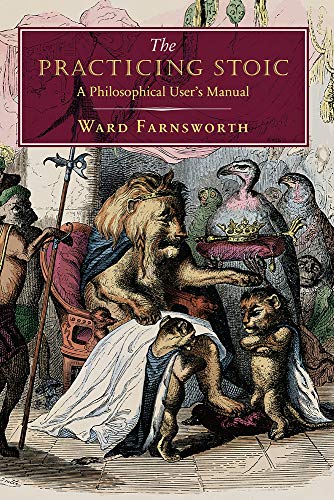The 17 Philosophers Books That Shape Minds and Morality
Curated by Stephen Fry, Bruce Springsteen, and Ryan Holiday, these Philosophers Books offer profound insights into thought and ethics.







What if the key to understanding life, ethics, and human nature lay in the pages of books penned centuries ago? Philosophers have long wrestled with questions that remain urgent today: How should we live? What is truth? What is the nature of the self? Diving into these texts can feel daunting, yet the insights they offer continue to shape minds and societies.
Consider Stephen Fry, whose curiosity led him to Philosophers on Consciousness by Jack Symes, finding clarity in complex mind-body questions. Meanwhile, Bruce Springsteen, a storyteller at heart, endorses Bertrand Russell’s A History of Western Philosophy for its sweeping narrative of ideas that ripple through culture. Ryan Holiday, known for popularizing Stoicism, points to Meditations by Marcus Aurelius as foundational for resilience in modern life.
While these expert-curated books provide proven frameworks, readers seeking content tailored to their specific background, interests, or goals might consider creating a personalized Philosophers book that builds on these insights, delivering a focused path through the rich landscape of philosophy.
Recommended by Ryan Holiday
Media strategist, former marketing director
by Marcus Aurelius··You?
by Marcus Aurelius··You?
After examining the stoic reflections of a Roman emperor, Marcus Aurelius crafted Meditations as a personal journal exploring resilience, virtue, and the fleeting nature of life. You gain insights into managing adversity with equanimity, honing self-discipline, and embracing the present without distraction—skills drawn from his Stoic philosophy mentor Epictetus. The book’s chapters offer contemplations on human nature and universal order that invite you to practice mindfulness and self-reflection daily. If you seek guidance on inner peace and purposeful living rooted in ancient wisdom, this text serves as a thoughtful companion, though it may feel dense if you prefer modern self-help styles.
Recommended by Bruce Springsteen
American rock singer-songwriter
by Bertrand Russell··You?
by Bertrand Russell··You?
When Bertrand Russell first set out to chronicle the development of Western thought, he wasn't just recounting history—he was mapping the evolution of ideas that shaped civilization itself. In this book, you explore seventy-six chapters that trace philosophical movements from ancient Greece through medieval scholasticism to the dawn of modern logical analysis. You'll gain insights into thinkers like Socrates, Aquinas, Kant, and even Russell's contemporaries Cantor and Frege, learning the context behind their ideas and how they connect. This volume suits anyone serious about understanding the roots and progression of Western philosophy, whether you're a student, scholar, or simply curious about the intellectual currents that influence today’s world.
by TailoredRead AI·
This tailored Philosophy Mastery Blueprint provides a deeply engaging exploration of essential philosophers and their ideas, crafted specifically to match your intellectual background and interests. It reveals the core concepts and debates that have shaped philosophical thought across history, focusing on key thinkers and their enduring questions about knowledge, existence, and ethics. By addressing your unique goals, this personalized book guides you through complex ideas with clarity and relevance, fostering a meaningful understanding of philosophy's rich landscape. The content is designed to cultivate your critical thinking and deepen your appreciation for the discipline in a way that aligns with your curiosity and learning style.
Recommended by David Mamet
Author and playwright
“It is reported that upon Seneca’s tomb are written the words, Who’s Minding the Stoa? He would be pleased to know the answer is Ward Farnsworth.” (from Amazon)
by Ward Farnsworth··You?
by Ward Farnsworth··You?
What started as an academic exploration by Ward Farnsworth, a law professor at the University of Texas, became a thoughtful guide that distills Stoic philosophy into twelve accessible lessons. You’ll explore how Stoics like Seneca and Marcus Aurelius teach that your reactions stem not from events themselves but from your judgments about them, a concept unpacked in chapters like Emotion and Adversity. Farnsworth enriches these lessons with carefully chosen quotations and clear commentary, helping you rethink emotional responses and develop resilience. This book suits anyone seeking to navigate life's challenges with calm reasoning rather than impulsive feeling, though those expecting a purely historical treatise might find it more practical than scholarly.
Recommended by Troy Baker Is A Relater
Storyteller and voice actor
“@DonJRobertson Have been reading and re-reading this specific part of your book for the last several days. Powerful connections. Would love to discuss with you further on our podcast. Fancy a chat?” (from X)
by Donald J. Robertson··You?
by Donald J. Robertson··You?
The breakthrough moment came when Donald J. Robertson, a cognitive-behavioral psychotherapist with over two decades of experience in Stoicism, framed Marcus Aurelius's philosophy through the lens of modern psychology. You learn how to apply ancient Stoic practices to cultivate emotional resilience and navigate adversity, illustrated by Marcus's own life chapters, such as his mentorship under Hadrian’s philosophers and his reign amid turmoil. This book suits anyone seeking practical philosophical guidance to build mental strength and ethical clarity in today's complex world. Robertson's integration of therapeutic techniques with historical narrative offers more than theory—it’s a lived philosophy you can adopt.
Recommended by Bryan Magee
Philosopher and author
“In this infectiously exciting book, Bryan Magee tells the story of his own discovery of philosophy and not only makes it come alive but shows its relevance to daily life. Magee is the Carl Sagan of philosophy, the great popularizer of the subject, and author of a major new introductory history, The Story of Philosophy. Confessions follows the course of Magee's life, exploring philosophers and ideas as he himself encountered them, introducing all the great figures and their ideas, from the pre-Socratics to Bertrand Russell and Karl Popper, including Wittgenstein, Kant, Nietzsche, and Schopenhauer, rationalism, utilitarianism, empiricism, and existentialism.” (from Amazon)
by Bryan Magee··You?
by Bryan Magee··You?
Drawing from decades of philosophical inquiry and broadcasting, Bryan Magee developed a narrative that brings philosophy into everyday life by exploring the essential ideas of thinkers from the pre-Socratics to modern figures like Wittgenstein and Popper. You’ll gain clarity on complex concepts such as rationalism, empiricism, and existentialism without feeling overwhelmed, as Magee’s enthusiasm and fluency make the material approachable and engaging. The book blends Magee's personal intellectual journey with sharp summaries of major philosophical ideas, helping you form your own perspective on these enduring questions. If you’re seeking an introduction that connects philosophy to lived experience and intellectual history, this book offers a thoughtful and accessible path.
by TailoredRead AI·
This tailored book offers a unique journey into Stoic philosophy, focusing on daily exercises designed to build resilience and mental clarity. It explores Stoic principles through a personalized lens, matching your background and specific goals to deliver relevant practices that resonate with your experience level. Each day presents thoughtful reflections and practical steps that reveal how Stoicism can be integrated into modern life, fostering emotional strength and thoughtful decision-making. By concentrating on your interests, this personalized guide unpacks the enduring wisdom of Stoic thinkers in a way that feels accessible and deeply relevant. It examines the transformative power of consistent practice, helping you cultivate a resilient mindset and clear perspective over a focused 30-day period.
Recommended by Paul Cartledge
Senior Fellow, Cambridge University
“If all Western philosophy is as has been claimed a series of footnotes to Plato of Athens, it's fortunate indeed that all his dialogues have survived and attracted translators and interpreters of the caliber of Robin Waterfield. Brilliant, witty, profound--and perplexing: Plato's all those and more (a uniquely resonant stylist too), and it's no mean tribute both to him and to the author to say that Robin Waterfield has done him justice.” (from Amazon)
by Robin Waterfield··You?
by Robin Waterfield··You?
Robin Waterfield, a seasoned scholar and translator deeply immersed in Greek philosophy, brings a unique vantage point to this first full biography of Plato. You gain insight into the man behind the dialogues—not just his philosophy but his political ambitions, personal disappointments, and the cultural myths that grew around him. Chapters detail Plato’s shift from poetry to politics, his reaction to Socrates’ death, and his founding of the Academy, painting a nuanced portrait that goes beyond abstract ideas to the lived experience shaping his thought. If you want to understand how Plato’s life informed his enduring influence on Western philosophy, this book is a focused introduction.
Recommended by Stephen Fry
Actor, author, and philosophy enthusiast
“This book is for everyone who is in the least philosopho-curious. Amateurs like me, thrashing about in the shallows, usually have to read every sentence in a book on philosophy, however apparently simple, at least four times before understanding it (and then forgetting it all the moment we have turned the page). Not so with Philosophers on Consciousness. Here are some of the world's most notable and respected thinkers, each adding their thoughts on the field known as 'philosophy of mind', most especially on the famous 'hard problem' of consciousness, and all communicating with remarkable clarity and approachable ease. Jack Symes guides us charmingly and authoritatively through, introducing and summing up the contributions, filling the role of interlocutor and interviewer, distributing delightful inline 'info-boxes' offering explanations of concepts, characters and context as you read. He does so with a wit and freshness that enlivens without trivializing. It cannot be common to find Toblerones, Paul Rudd and Adam Sandler sharing pages with the most distinguished philosophers alive. This is a book that everyone interested in the human mind will fall on like… like a hungry student on a Toblerone.” (from Amazon)
by Jack Symes··You?
by Jack Symes··You?
When Jack Symes, a philosophy teacher and researcher at the University of Liverpool, assembled this book, he aimed to unravel the persistent mystery of consciousness through conversations with leading thinkers. You’ll explore how the brain’s physical processes give rise to subjective experience, a puzzle known as the 'hard problem' of consciousness. Symes guides you through interviews and essays from notable philosophers like David Chalmers and Patricia Churchland, clarifying complex ideas with approachable explanations and contextual info-boxes. If you’re curious about the mind’s nature and how it connects to identity, meaning, and morality, this book offers thoughtful insights without overwhelming jargon.
Recommended by The Irrational Investor
PhD. CFA Level III. Avid reader and investor.
“A thread on my notes and highlights from the book "Letters from a Stoic" by Seneca. Written in around 65 AD, the book is a literary masterpiece, and has had a great influence on me. I try to re-read it at least once a year.” (from X)
by Seneca, Coralie Bickford-Smith, Robin Campbell··You?
by Seneca, Coralie Bickford-Smith, Robin Campbell··You?
What if everything you knew about Stoicism was filtered through centuries of interpretation? Seneca’s "Letters from a Stoic" invites you directly into the mindset of one of Rome’s most influential philosophers, blending personal reflection with ethical guidance. You’ll find yourself learning how to cultivate resilience, manage destructive emotions, and live with integrity—even amid political chaos, as Seneca did advising Nero. The introduction by Robin Campbell adds context to Seneca’s complex life, balancing his public role with his private ideals. This book suits anyone eager to explore Stoic philosophy not as abstract theory but as a lived practice shaping courage and self-control.
Recommended by The New Yorker
“This lively history of the existentialist movement makes a strong, if sometimes disorienting, case for the inextricability of philosophy and biography, embedding dense concepts—such as ‘being,’ ‘nothingness,’ and ‘bad faith’—in the colorful lives and milieus of those who debated them. Though the book is in many ways a group study, dotted with cameo appearances by Albert Camus, Simone de Beauvoir, Maurice Merleau-Ponty, and others, it focuses on Heidegger and Sartre. Heidegger appears as oracular, hermetic, and Nazi-tainted; Sartre as intellectually promiscuous and Soviet-sympathizing. Their divergent characters and checkered reputations lend credence to Bakewell’s view that ‘ideas are interesting, but people are vastly more so.’” (from Amazon)
by Sarah Bakewell··You?
Sarah Bakewell's exploration of existentialism emerges from her deep engagement with the lives and philosophies of key 20th-century thinkers like Sartre, Beauvoir, and Heidegger. Through vivid storytelling that blends biography with philosophy, you gain insight into complex concepts such as freedom, authenticity, and responsibility, grounded in the real-world tensions and relationships that shaped them. The book unpacks how these ideas influenced major political and social movements, providing you with a nuanced understanding of existentialism's enduring relevance. If you're interested in philosophy's human side and its intersection with history and culture, this book offers a richly layered narrative that challenges and enlightens.
Recommended by Thomas Nagel
Philosopher at The New York Review of Books
“In From Bacteria to Bach and Back, his eighteenth book (thirteenth as sole author), Dennett presents a valuable and typically lucid synthesis of his worldview . . . . Dennett is always good company . . . . he writes with wit and elegance . . . . distinctive.” (from Amazon)
by Daniel C. Dennett··You?
by Daniel C. Dennett··You?
Daniel C. Dennett, a longtime professor at Tufts University and a leading thinker in philosophy and cognitive science, explores how human consciousness emerged from natural selection in this book. You’ll encounter his argument that cultural evolution, driven by memes and language, shaped minds capable of creativity and comprehension. Chapters detail how mindless evolutionary processes can give rise to complex mental phenomena, blending insights from biology, computer science, and philosophy. If you're fascinated by the origins of consciousness and want to understand the evolutionary basis of thought, this book will deepen your grasp, though it demands careful attention to its nuanced ideas.
Recommended by Amir Salihefendic
Founder and CEO at Doist
“@stephsmithio I recommend reading The Manual: A Philosopher's Guide to Life (if you haven't 😅). It's super short but such a great book on Epictetus's philosophy.” (from X)
by Epictetus, Sam Torode, Thomas Wentworth Higginson··You?
by Epictetus, Sam Torode, Thomas Wentworth Higginson··You?
Drawing from his experience as a former slave and teacher in ancient Rome, Epictetus offers a philosophy grounded in practical resilience rather than abstract theorizing. This book distills his core teachings on Stoicism, emphasizing how to manage suffering and maintain inner freedom despite external hardships, such as his own physical disability and exile. You’ll gain insights into separating what you can control from what you cannot, learning to respond to life's challenges with equanimity and purpose. If you seek a philosophy that applies to everyday struggles and personal growth, this guide provides clear, timeless wisdom without unnecessary complexity.
Recommended by Gordon Graham
Author of The Internet: A Philosophical Enquiry
“'- A Short History of Modern Philosophy could hardly be done much better than Dr Scruton has done it.' - Gordon Graham, author of The Internet: A Philosophical Enquiry” (from Amazon)
by Roger Scruton··You?
by Roger Scruton··You?
Roger Scruton's extensive background in aesthetics and philosophy shines through in this engaging survey of modern thought, spanning from Descartes to Wittgenstein. You’ll gain a clear understanding of key philosophers and the central debates that have shaped Western philosophy, with Scruton weaving in recent discussions to keep the narrative relevant. The book explores foundational ideas like Cartesian dualism and Wittgenstein's language theories, offering precise sketches of intellectual movements along the way. If you’re serious about grasping the trajectory of modern philosophy or want a well-structured introduction to its major figures and concepts, this book will serve you well. It’s less suited for casual readers seeking light overviews and more for those ready to engage with dense philosophical content.
Recommended by Sam Altman
CEO of OpenAI, Former Y Combinator CEO
by I. F. Stone··You?
by I. F. Stone··You?
I. F. Stone, a political journalist with a strong foundation in classical philosophy, spent over ten years melding investigative journalism with ancient scholarship to dissect Socrates' trial. You gain a detailed look at the historical and political context of Athens, uncovering the layers behind the philosopher's conviction through primary sources and critical analysis. The book challenges traditional narratives by blending evidence and inquiry, offering you insights into legal, cultural, and philosophical dimensions of the case. If you're intrigued by how history and philosophy intersect with real-world events, this book gives you a nuanced perspective that goes beyond textbook summaries.
Recommended by Jim Rohn
America's Foremost Business Philosopher
by Will Durant··You?
by Will Durant··You?
William James Durant, a Columbia-trained philosopher and Pulitzer Prize-winning author, crafted this concise edition after over a decade of meticulous research. You’ll gain clear insights into the lives and ideas of major Western thinkers like Nietzsche, Plato, and Kant, framed within their historical contexts. Chapters vividly blend biography with philosophy, helping you understand how these thinkers shaped modern intellectual heritage. If you’re eager to grasp the evolution of philosophical thought without getting lost in jargon, this book offers a focused and engaging overview. However, readers seeking exhaustive analysis might find the brevity challenging.
Recommended by Gady Epstein
The Economist's China Affairs Editor
“To aspiring readers, a new book out today: Eric Weiner, an entertaining writer (and occasionally an entertaining person), consulted some of the world's best dead philosophers to give you advice on life. Check it out” (from X)
The methods Eric Weiner developed while tracing the footsteps of history's greatest philosophers reveal how ancient wisdom can address modern dilemmas. This book takes you on a global journey, connecting locations like Athens and Paris with thinkers such as Socrates and Simone de Beauvoir, to uncover life lessons on hope, wonder, and regret. You’ll gain insights into how philosophy’s original purpose—guiding us toward meaningful living—remains relevant today, illustrated through compelling chapters featuring Epicurus and Gandhi. If you’re seeking to deepen your understanding of philosophy as a practical guide rather than abstract theory, this book offers a thoughtful exploration.
Recommended by Yascha Mounk
Associate professor and contributing editor
“@WEilenberger Thanks for a great book (and a great conversation), Wolfram!” (from X)
by Wolfram Eilenberger, Shaun Whiteside··You?
by Wolfram Eilenberger, Shaun Whiteside··You?
Drawing from his extensive background as a bestselling philosopher and editor, Wolfram Eilenberger crafts a vivid narrative exploring the lives and ideas of four pivotal thinkers during the decade following World War I. You’ll gain insight into how Walter Benjamin, Martin Heidegger, Ludwig Wittgenstein, and Ernst Cassirer grappled with personal and philosophical upheaval, shaping modern thought. The book delves into their intertwined careers, ideological tensions, and differing destinies against a backdrop of political turmoil, with chapters vividly portraying moments like Wittgenstein's renunciation of his inheritance or Benjamin’s struggles as a critic. This is a thoughtful read if you want to understand the human stories behind major philosophical movements, though it’s best suited for those comfortable navigating complex intellectual history.
Recommended by Cass Sunstein
Harvard Professor; former White House official; legal scholar
“"I may be somewhat unusual in the fact that I never get tired or sated with what I love most, so I don't need or want variety." - Derek Parfit (from the amazing new book by David Edmonds)” (from X)
by David Edmonds··You?
by David Edmonds··You?
David Edmonds offers a thoughtful biography of Derek Parfit, a philosopher who dedicated his life to proving that morality stands on objective, rational grounds without relying on divine authority. You get an intimate look at Parfit's obsessive commitment to philosophy, including his minimalist lifestyle choices meant to maximize intellectual focus. The book unpacks Parfit's complex ideas about altruism, equality, and our duties to future generations, making them accessible without diluting their depth. If you're curious about the intersection of ethics and reason or want to understand a thinker grappling with morality's foundations, this book shows you both the man and his mission with clarity and respect.
Get Your Personal Philosophers Strategy in 10 Minutes ✨
Stop following generic advice. Get targeted strategies without reading 10+ books.
Trusted by philosophy enthusiasts and thought leaders worldwide
Conclusion
The 17 books in this collection illuminate enduring themes: the quest for wisdom, the struggle to live ethically, and the search for meaning amid uncertainty. If you’re grappling with personal challenges, Meditations and The Practicing Stoic offer guidance on emotional resilience and clarity. For those drawn to philosophical biography and historical context, Plato of Athens and Time of the Magicians deepen understanding of the forces shaping thought.
For rapid intellectual immersion, pairing A History of Western Philosophy with A Short History of Modern Philosophy provides a broad yet detailed map of philosophical evolution. Meanwhile, Philosophers on Consciousness and From Bacteria to Bach and Back invite you into cutting-edge debates on the mind and consciousness.
Alternatively, you can create a personalized Philosophers book to bridge the gap between general principles and your specific situation. These books can help you accelerate your learning journey and enrich your understanding of some of humanity’s most vital questions.
Frequently Asked Questions
I'm overwhelmed by choice – which book should I start with?
Start with Meditations by Marcus Aurelius if you're interested in practical philosophy for life guidance. It's accessible yet profound, and recommended by Ryan Holiday and Naval Ravikant for its timeless wisdom.
Are these books too advanced for someone new to Philosophers?
Not at all. Books like Confessions of a Philosopher by Bryan Magee and The Manual by Epictetus provide approachable introductions that connect philosophy to everyday life, making them great for beginners.
What's the best order to read these books?
Begin with broader histories like A History of Western Philosophy to build context, then explore specific themes or figures such as Stoicism with The Practicing Stoic or existentialism through At the Existentialist Café.
Do I really need to read all of these, or can I just pick one?
You can certainly pick based on your interests. Each book stands on its own, but together they offer a richer understanding of philosophy’s breadth and depth.
Which books focus more on theory vs. practical application?
Philosophers on Consciousness and A Short History of Modern Philosophy lean toward theory, while Letters from a Stoic and How to Think Like a Roman Emperor emphasize practical application.
How can I apply these expert books to my specific interests or goals efficiently?
Yes, these expert books provide solid foundations, but personalized books can tailor this knowledge to your unique context, making philosophical insights more actionable. Consider creating a personalized Philosophers book to bridge expert wisdom with your goals.
📚 Love this book list?
Help fellow book lovers discover great books, share this curated list with others!
Related Articles You May Like
Explore more curated book recommendations
















